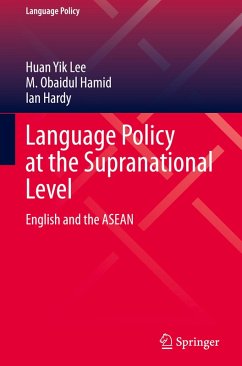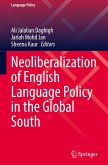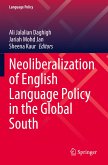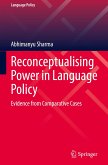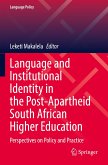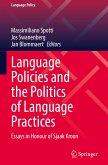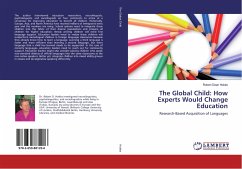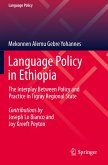This book provides a critical examination of the English-only policy of ASEAN, the Association of the ten Southeast Asian nations. It presents the ASEAN language policy and planning (LPP) journey through time: rationalising English as the sole working language for ASEAN in the past, followed by a critique of the status quo considering regional complexities and dynamics, and finally exploring alternative linguistic futures for ASEAN and the Southeast Asian region. The book also offers methodological innovations in LPP research by utilising the largely underrepresented and undervalued agency of 'people with expertise'.
The authors argue for a multilingual commitment towards pursuing an agency of 'projectivity' in co-constructing imagined LPP possibilities to reflect the region's socio-historical context, socio-political intricacies, and socio-linguistic diversity. The way forward is a more inclusive, equitable, balanced, and responsible approach to LPP, both regionally and globally.
The book engages with both deconstructive and constructive paradigms, offering promising proposals for dealing with key language issues and contemporary challenges. This book will be interesting reading for language and education scholars, sociolinguists, historians, political scientists, policymakers, diplomats, language activists, media personnel, business leaders, tourism players and other language policy and planning actors operating at national, sub-national and supra-national levels.
The authors argue for a multilingual commitment towards pursuing an agency of 'projectivity' in co-constructing imagined LPP possibilities to reflect the region's socio-historical context, socio-political intricacies, and socio-linguistic diversity. The way forward is a more inclusive, equitable, balanced, and responsible approach to LPP, both regionally and globally.
The book engages with both deconstructive and constructive paradigms, offering promising proposals for dealing with key language issues and contemporary challenges. This book will be interesting reading for language and education scholars, sociolinguists, historians, political scientists, policymakers, diplomats, language activists, media personnel, business leaders, tourism players and other language policy and planning actors operating at national, sub-national and supra-national levels.

